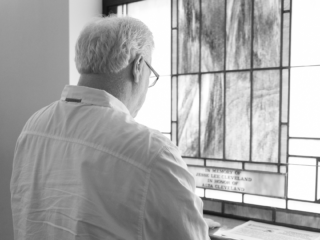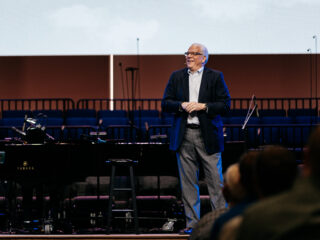If the task is begun well and finished well, most of us would assume we have done the task well. Most people would agree. Take your typical speech. After giving a speech that you thought could have been delivered better, a good friend might say, “You started well and finished well. No one will remember the middle anyway.”
I’m not so sure this is true.
It’s certainly not true in baking. You can brown the top of the bread and the bottom as well, but if you take the bread out of the oven too soon, the middle won’t be done. I don’t know any baker who would consider that a success. I know a lot of people who started their lives with energy and purpose and then lost their way. Even after they recovered their focus and finished their lives with great purpose and energy, my friends would grieve the years they wasted.
And it’s certainly not true in the evangelical truth. In my evangelical tribe, we focused on two things — accepting Christ as your Savior and then waiting for Christ to return.
We totally missed the middle. In traditional theological terms, we emphasized justification and longed for glorification, but between the moment of our decision to accept Christ and Christ’s return, we didn’t know what to do.
The focus of being formed into the likeness of Christ on a daily basis was lost to us. Most people didn’t change. We spent a lot of time talking about what sinners we all are, but no one really talked about being free from our sins, and then, free to serve. We were never told that being born again meant having to grow again. If someone did experience a deeper moment with Christ, we didn’t know what to do with that. So, we baptized them again.
In Ephesians, Paul puts a lot of emphasis on the process of sanctification. Come out of your former life. That’s not how you learned about Christ. Let the one who stole not steal anymore, Paul writes. Who the Ephesians used to be doesn’t govern or influence who they are now under the Lordship of Christ.
Let’s talk about why this matters. Because we neglected the transformational change in the lives of Christ-followers, most Christ-followers didn’t change. Because our communities didn’t see anyone really change, the next step was to assume no one could change.
Then, we lost faith in the gospel. Somewhere over the last fifty years, evangelicals have gone from total neglect of politics and proclaiming the gospel alone was the hope of America to spending entire worship hours telling our members if the right politicians weren’t elected, America would be lost.
Churches became political action committees. We lobbied political leaders telling them if they supported certain issues, we’d guarantee a certain block of voters. The politicians treated us the same way they treated any PAC. They told us what they thought we wanted to hear and then forgot about us until the next election cycle.
Sure, I may be a little cynical, but not much. The church in North America has traded its prophetic mantle for the porridge of political access.
One of the geniuses of the Christian movement is Christianity has no political aspect to its message. Christians and their churches have been able to adapt and thrive in any kind of political setting. The church thrived in the Roman Empire, across all of the convulsions of medieval Europe, and even under totalitarian regimes like the former Soviet Union and Communist China.
Jesus promised to establish His church with such security the gates of hell couldn’t overthrow it. I believe that. I believe the church can succeed, even thrive, in postmodern America.
But before the gospel can thrive in America, the gospel must thrive in the local church. This means the church must rediscover the teaching of sanctification. As our neighbors see the lives of Christ-followers transformed into the likeness of Christ, they’ll find a renewed interest in Christ – if, as Jesus teaches, we let our good deeds shine so that people who see them will give glory to our Father in heaven.
That’s going to mean placing our focus back on Christ. He and He alone is the hope of the world. When the crowds rushed Jesus to crown Him king, He slipped away and refused the throne of political power.
His church should do the same.









